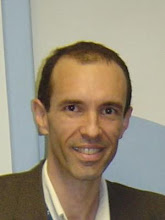It is very well worth its 44 min (plus 16 of question answering), but don't take my word for it: even if you're not into computer architecture or if you think you can't afford to watch the whole video, try this short story inbetween 39:24 and 42:16, in which professor Patt describes his old man's reaction to his winning a medal for losing.
I don't want to spoil the story, but if we had more people speaking out like this maybe we could get back on track in education, helping students to "get it" instead of helping them "feeling good about themselves" (or trying to, since it doesn't work). "You get a medal when you win; you don't get a medal when you lose". Professor Patt also talks about computer architectures, Moore's Law (on doubling chips' capacity), education in Computing, ..., quantum computing, NP-completeness, ..., marriage, cellphones, "football" (the one played with the hands), etc. in a very enthusiastic way.



